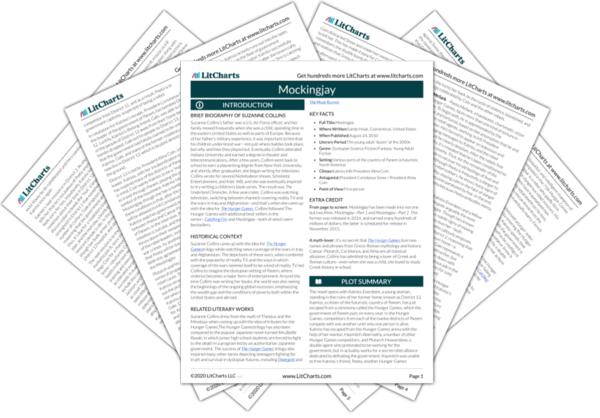LitCharts assigns a color and icon to each theme in Mockingjay, which you can use to track the themes throughout the work.
Revolution and Its Problems
The Power and Danger of Symbols
Role-Playing, Authenticity, Television, and the Self
Compassion, Callousness, and Revenge
